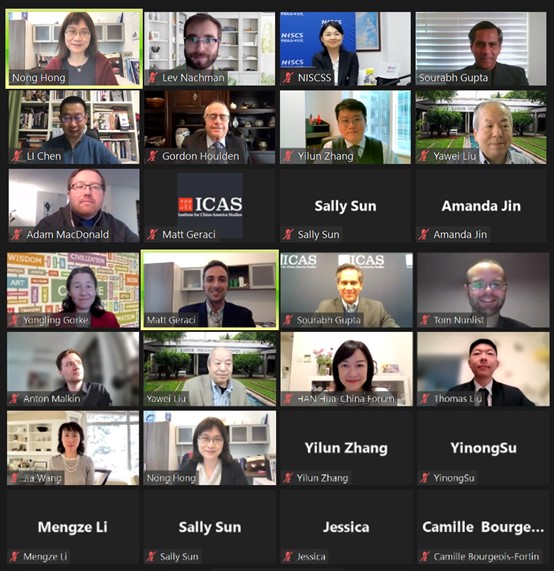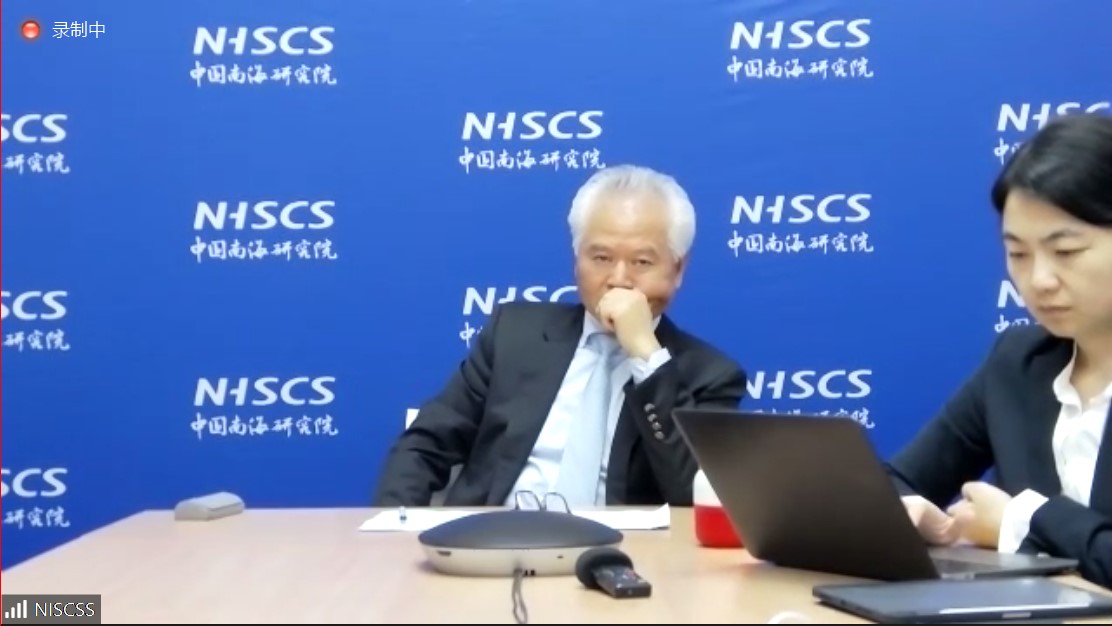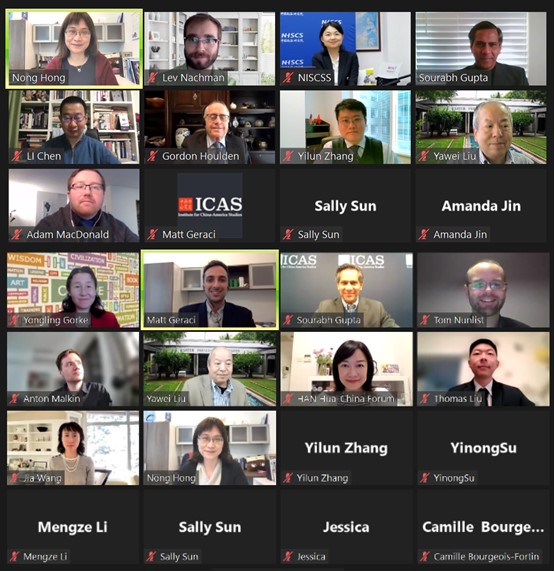On November 17-18, the 3rd China-US-Canada Trilateral Relations Roundtable took place virtually. The event, hosted by the Institute for China-America Studies (ICAS) with the China Program at the Carter Center and the China Institute at the University of Alberta, focused on key economic, security, environment and other issues for the trilateral ties. Among the panelists were China Forum experts including HONG Nong, Executive Director, ICAS; WU Shicun, Founding President, National Institute for South China Sea Studies (NISCSS); YAN Yan, Director, Research Center for Oceans Law and Policy, NISCSS; and LI Chen, Fellow, Center for International Security and Strategy, Tsinghua University. HAN Hua, Executive Committee Member of the China Forum, also joined the dialogue.

Group photo, Nov. 17-18
The US, Canada and China are deeply intertwined with each other, facing together a broad set of interconnected issues, Hong Nong said in the panel discussion on November 17.

Wu Shicun, Founding President, NISCSS
Yan Yan (right), Director, Research Center for Oceans Law and Policy, NISCSS
In his opening remarks, Wu Shicun noted that the complex trilateral relationship offers both challenges and opportunities, suggesting that the three countries adopt a long-term perspective to foster healthy competition.
Yan Yan gave a keynote speech on the South China Sea and US-China maritime relations, pointing out that what the two powers face in the region is not territorial or jurisdiction disputes but geopolitical competition, and that the key remains crisis prevention and management.
Li Chen proposed suggestions to manage arms races, including strengthening strategic communication, restoring dialogues, and acknowledging the limitations and challenges of emerging technologies.
On November 18, Han Hua gave a speech on youth engagement in the Belt and Road Initiative, highlighting the roles of the younger generation and people-to-people exchange in advancing the initiative.
Gordon Houlden, Director Emeritus of the China Institute at the University of Alberta, and Yawei Liu, Director of the Carter Center’s China Program, delivered the opening and closing remarks at the roundtable respectively.

